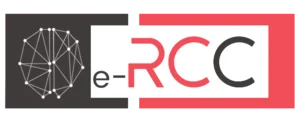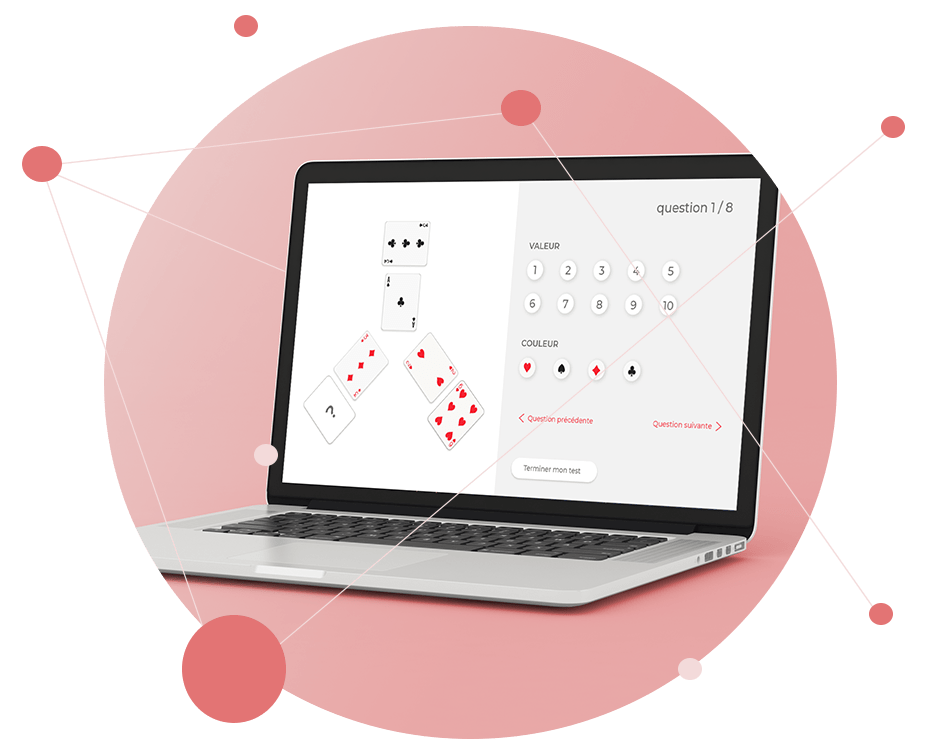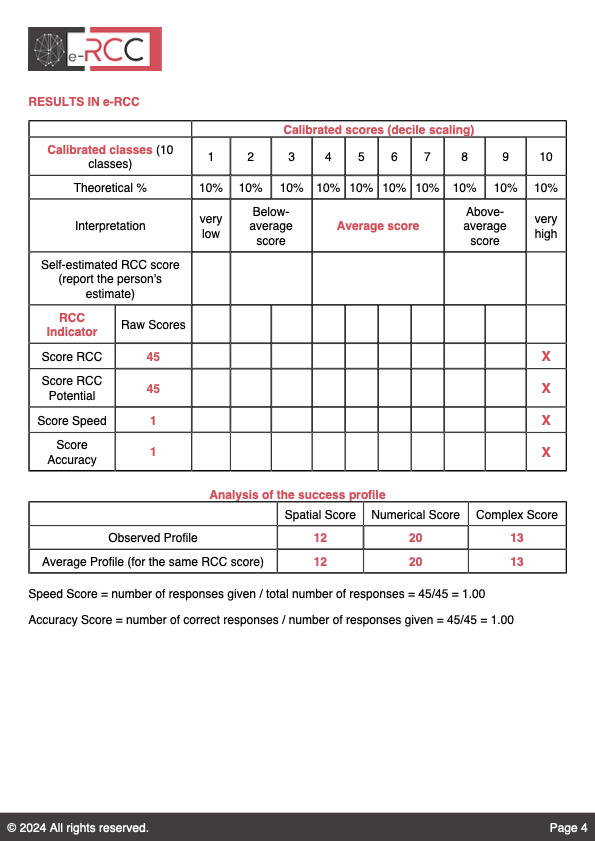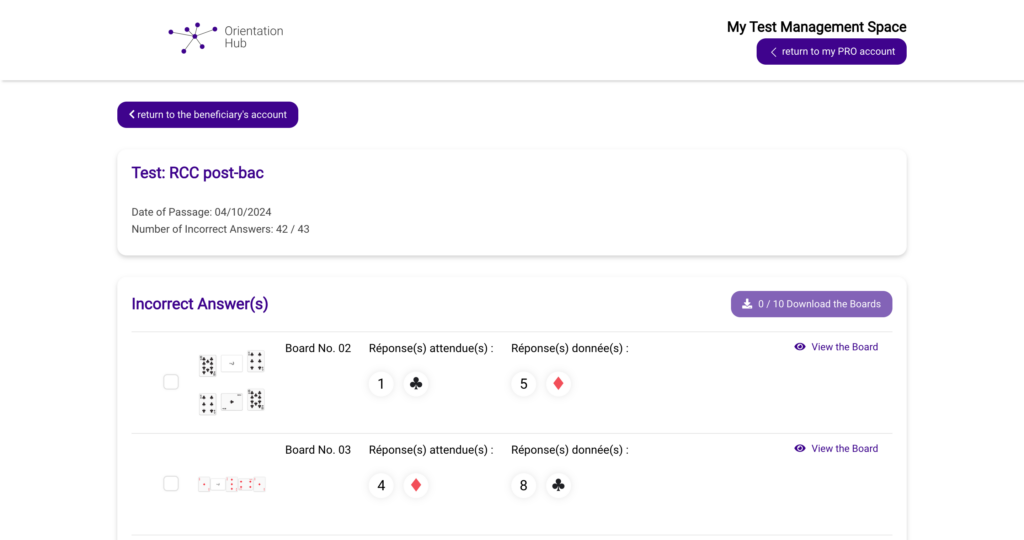
e-RCC : online logical reasoning test
e-RCC TEST
A test for assessing logical reasoning abilities.
The e-RCC test (digitized Chartier Cards Reasoning) aims to assess logical reasoning abilities. The administration is quick (20 minutes) and allows for the issuance of two written reports: a summary one for the recipient and a more comprehensive one for the professional.
Based on problem situations using playing card representations as support (a non-verbal test), it involves finding the characteristics of the card (suit and value) that must complete a proposed sequence.
This test pertains to the general intelligence factor (g factor) and more specifically to fluid intelligence (the general ability to process complexity), considered a central skill in cognitive functioning, relatively independent of cultural contexts and acquired knowledge.
Therefore, it is also suitable for non-English-speaking audiences or those with language disorders.
This factor is strongly linked to the level of professional success in many fields.
The use of e-RCC is reserved for professional : psychologist, advisors, recruitment firms.
Use cases
When to use the e-RCC?
Recruitment
In selection and recruitment processes, entrance to training programs (or to prepare individuals for this type of evaluation).
Assessments
In the context of skill assessments & orientation assessments… for individuals undergoing career changes or facing disabilities or debilitating illnesses.
Education
The e-RCC can complement academic evaluations when a more comprehensive assessment (such as IQ) is not necessary.
Coaching
It can also be used in a psycho-educational approach, extending the session into a self-reflection process, with the option to print and review certain failed items with the individual in a meta-cognitive approach.

e-RCC TEST
A comprehensive analysis with multiple indicators
This test relates to the general intelligence factor ( g factor) and more specifically to fluid intelligence (general ability to deal with complexity), considered to be a central skill in cognitive functioning, relatively independent of cultural contexts and acquired knowledge.
It is used to collect several indicators:
THE RESULTS
Two types of reports
A detailed report of the results is sent to the professional, while a more concise report can be sent to the beneficiary.
These reports are automatically generated after the online test, and are a real tool to help interpret and appropriate the results.
They present the person’s different results in table form: the score table and the summary table of results for each item.


Analysis of results
Through its cognitive and differential approach, the e-RCC test enables the development of reflection on oneself (notion of metacognition), on one’s problem-solving strategies and on one’s errors.
With this in mind, professionals can engage in psycho-educational practices by repeating certain items in an “accompanied” test.
Indeed, at the end of the test, the platform enables you to print out certain failed items, so that you can go over them with the person and propose a new test, accompanied, if need be, by resolution aids in a meta-cognitive approach and/or a dynamic evaluation of reasoning skills.
2 versions of e-RCC
The before higher education e-RCC includes 40 boards to be solved (items) in 20 minutes, for people with a level of qualification equal to or less than the baccalauréat.
The higher education e-RCC includes 45 boards, for people with a level of qualification higher than the baccalauréat.
A technical manual is also available, presenting theoretical references, indicator descriptions, test validation elements and all the information needed to use the test. It also includes several case studies.
WHO IS E-RCC FOR?
Tools for professionals only
e-RCC is accessible to professionals in the sectors of recruitment, psychology and education, with a post-graduate degree.
OUR PRODUCTS
Reduced prices according to the number of tests purchased
Each credit can be used for the e-RCC test
